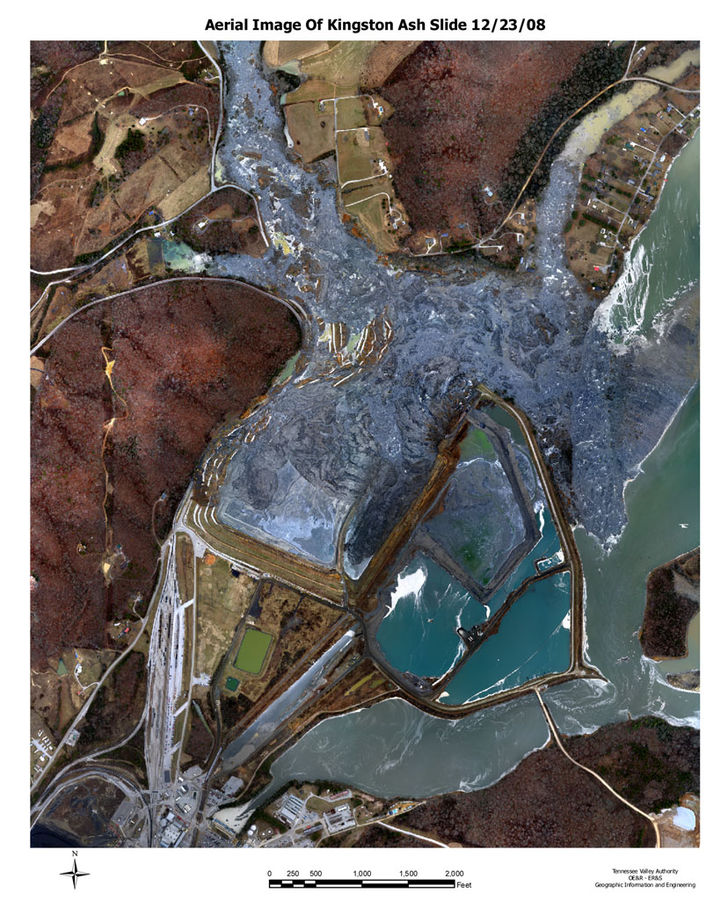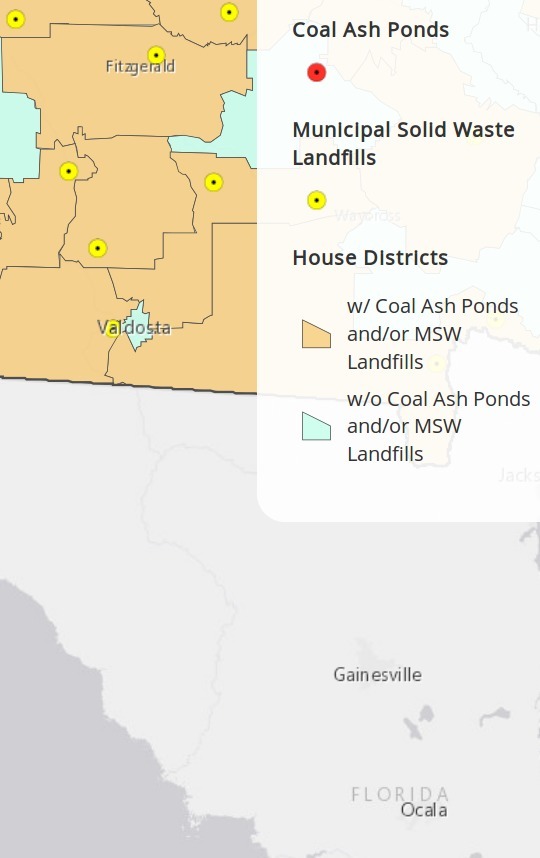Crossover day is this Thursday, by which bills have to pass one part of the Georgia legislature to be considered in the other. Please contact your state legislators today to stop coal ash pollution!
Coal ash from the infamous Kingston, Tennessee coal ash pond dam break in 2008 was shipped to at least five landfills in south Georgia, including the old landfill in Lowndes County, which is in an aquifer recharge zone and a quarter mile uphill from the Withlacoochee River. That landfill also has coal ash from Jacksonville, Florida. We don’t need any more coal ash in any landfills in Georgia. The power companies that produced it need to store it safely on their own land.

TVA aerial image of Kingston Ash Slide 2008-12-23.
Please call your Georgia state legislators today, to support:

